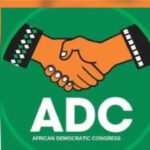NNPC: Ojulari, His Team Rewriting the Story to Global Standards

By Bamidele Atoyebi
In a country where institutional decay is often accepted as the norm, one of Nigeria’s most powerful public enterprises, the Nigerian National Petroleum Company (NNPC) appears to be undergoing a quiet but significant transformation.
For decades, NNPC was the poster child of opacity, corruption, and political patronage. It carried the reputation of a government agency deeply entrenched in wasteful practices, secret deals, and subsidy scams. But suddenly, and without drama, things are beginning to change.
No More Bogus Refinery TAM
Nigerians are used to hearing about billion-dollar Turnaround Maintenance (TAM) projects that never deliver results. The Port Harcourt refinery, in particular, has seen wave after wave of TAM contracts that cost the country over $9 billion between 2010 and 2020 yet the facility remained comatose.
Each new GMD (Group Managing Director) of NNPC typically started with a fresh TAM proposal, widely seen as the first “cash-out” opportunity. But this time around, there’s an unusual silence. No grand announcement. No $2.5 billion project flagged off. And no media show.
This is not oversight. It’s intentional. It’s reform.
The End of Fuel Allocation “Tributes”
Equally telling is the quiet disappearance of one of the most notorious rackets in Nigeria’s downstream sector: the weekly extortion of petroleum marketers. In the old system, marketers reportedly paid as much as $350,000 in bribes just to secure fuel allocation from NNPC. Without “settling” top officials, no product was guaranteed.
Today, that practice appears to have stopped. Marketers are no longer asked to “contribute” to help a new GMD “settle down.” Fuel distribution is being handled through formal procedures. The old gatekeepers are losing their grip and the system is breathing.
Shedding the Subsidy Shadow
The removal of fuel subsidy while painful for citizens has opened the space for more transparency within NNPC. For years, subsidy payments served as a financial black hole. Billions of naira were claimed by marketers with little oversight. Audits by NEITI and other bodies repeatedly exposed gaps and ghost claims.
Now, with the subsidy gone, NNPC no longer holds those hidden levers. Its operations are gradually becoming clearer. The books are more visible. And its accountability, though still imperfect, is improving.
From a Government Juggernaut to a Commercial Entity
Another major shift is NNPC’s transition to a limited liability company under the Petroleum Industry Act. NNPC Limited is now structured to run commercially answerable to shareholders, bound by audits, and driven by performance.
Recent milestones include the publication of audited financial statements, payment of dividends to the Federation Account, and a reorganization of joint venture operations to attract more investment.
This is a departure from the bloated, bureaucratic giant that once served more as a political cash cow than an oil company.
A New Kind of Leadership
The reforms are gaining ground under the focused leadership of Engr. Bashir Bayo Ojulari and a forward-thinking board. With quiet commitment and professionalism, they are steering the company toward greater transparency and accountability reflecting a clear shift from past practices and aligning with the broader goals of
the Renewed Hope agenda of the current administration.
This is the positive and progressive results you get when expertise meets integrity the results are always green; don’t forget that Nigeria has finally met the OPEC 1.5m barel per day quota. It’s understatement to say Ojulari and the team are doing very well.
Data from NUPRC shows increased upstream investment has boosted crude output, as Nigeria meets its Opec quota. NNPC has also set ambitious production goals which are definitely achievable given the focus of the team at the helm now.
Why It Matters
These reforms don’t make front-page headlines. They lack the flash of presidential broadcasts or social media campaigns. But they matter.
cleaner, more accountable NNPC means:
Less leakage from public funds
More trust from international investors
A fairer market for local businesses
And ultimately, better service for ordinary Nigerians
This could be a turning point not just for the oil industry, but for public sector reform across the board.
Final Thought
Nigeria may not change loudly. But if silence means no more bogus contracts, no more weekly bribes, and no more looting disguised as “maintenance,” then silence is golden.
A new NNPC may not yet mean a new Nigeria but it’s a good place to start.
Bamidele is a convenor of BAT Ideological Group, National Coordinator of Accountability and Policy Tracker and A Publisher at Unfiltered and Mining Reporting








